Former Lord President Lord Hamilton, now of Qatar court. TRANSPARENCY has not always been the perceived sworn & deadly enemy of Scotland’s jet setting, boozing, partying, public-funds-cheating & tax avoiding-island-hopping-bank-fiddling Judiciary of Scotland – as one former Lord President proved when confronted by journalists investigating the veil of secrecy around our ermine clad public servants.
For the story of how Scotland’s judiciary finally surrendered details of their own cash splurging expenses claims – began with an investigation by Diary of Injustice during 2010 – prompting a decision by the then Lord President – Lord Arthur Hamilton – to publish judges expenses claims on a quarterly basis ever since.
The task – to break the secrecy around how much public cash our judges were burning up for junkets here, there and everywhere – was admittedly difficult.
The Scottish Government – initially claimed they held no such figures – and none existed.
The same was true of the Scottish Courts Service – eager to keep the open wallet policy of throwing cash at the judiciary out of the headlines.
But, there was Freedom of Information – a tool to be used by all – media and public alike – to break the secrecy of our public institutions no matter how high up the ladder they regard themselves.
Compared to England & Wales – where the judiciary were required to publish their expenses claims and had done so for many years, going that little bit further in Scotland appeared almost impossible, with the resistance encountered from public bodies responsible for the figures.
The more resistance, the more suspicion there was … something to hide.
On top of judicial salaries in 2010 – around £6.1 million, the judges were topping up their positions with cumulative expenses claims of £200K.
Admittedly perhaps not in the Westminster Parliament’s expenses fiddling league – but getting there – if left secretive and unchecked.
However, once told of the queries – Lord Hamilton – the top man – was having none of it – and the Scottish Courts Service were ordered to make the figures public on a rolling basis – every quarter.
And since 2010, on a more often than not regular basis, the public are able to read up on how much Scotland’s eerily secretive, not-very-diverse-or-representative-of-the-wider-community judges plunder from the public purse by clicking here: Judiciary of Scotland – Judicial Expenses Claims
In one quarter alone this year – from 1 April to 31 June, our Court of Session Senators on salaries of up to £225K a year – claimed a whopping £17,331.57 extra in expenses.
Lord Carloway – who is otherwise occupied in fighting proposals before the Scottish Parliament to create an even greater and more effective level of transparency – Petition PE1458: Register of Interests for members of Scotland’s judiciary – claimed £1315.66 expenses in the last quarter available.
Lady Dorrian – The Lord Justice Clerk – claimed a mere £338, Lady Smith – £176.55. Lady A Carmichael- £121. Lord Kinclaven claimed a whopping £6,195.35 – most of which falls under the heading of “accommodation and subsistence”. Lord Brailsford required £14.85 from the public purse – the same judge whose name appears on the title deeds of the Laigh Hall – as a “trustee” for the Faculty of Advocates who swiped it from public ownership. Lord Matthews claimed £308.70. Lord Pentland claimed £385.86. Lady Stacey claimed £741.50. Lord Tyree claimed £490.52. Lord Stewart claimed £3,990.75. Lord Burns claimed £103.80.Lord Armstrong claimed £2,709.50. and Lady Rae claimed £439.53. Bringing a grand total of £17,331.57 for a mere three months work for a handful of judges.
It’s a tough life being a Senator of the Court of Session.
All that jet setting, sitting in court, gatherings with the legal crowd at taxpayers expense. resisting declaring their interests.
A tough life indeed – but at least Lord Hamilton allowed the media and the public the chance to peer a little deeper into how our cash flowed out on judicial jet set junkets and judicial expenses claims.
Since retiring as Lord President, Lord Hamilton now serves on the supplementary panel of the United Kingdom Supreme Court (UKSC).
Additionally, from April 2015 – the former Lord President now holds a position on the Qatar International Court and Dispute Resolution Centre – where big business can confront each other over – as the title suggests – disputes.
The Qatar International Court (QIC) is based in Doha, Qatar. The Court’s mission statement from their website states: “To provide a world-class international court and dispute resolution Centre that will maintain the highest ethical standards, act in accordance with internationally recognized best practices and deliver justice fairly and efficiently with a firm commitment to upholding the Rule of Law.”
The court is led by QIC President, The Rt. Hon. The Lord Phillips of Worth Matravers – former Lord Chief Justice of England and Wales who served as President of the Supreme Court of the UK from 2009 to 2012.
Appointed along with Lord Hamilton was Edwin Glasgow QC from England, Gopal Subramaniam from India and Justice Laurence Li, a former supplementary judge of the Qatar International Court, from Hong Kong.
The QIC comprises the QFC Civil and Commercial Court and the QFC Regulatory Tribunal established pursuant to QFC Law No 7 of 2005, as amended by QFC Law No 14 of 2009. The QIC has internationally renowned judges with expertise in complex commercial disputes and serves to uphold the rule of law, applying the highest quality international legal standards to civil and commercial disputes between individuals and business entities operating both in and outside the QFC.
Readers will be familiar with Lord Brian Gill’s five day state visit to Qatar LORD JET SET: Scotland’s top judge Lord Gill takes 5 day STATE VISIT to Qatar as investigation reveals judiciary’s international travel junkets spree.
Gill took the junket in preference to appearing before the Scottish Parliament to give evidence on A Register of Interests for Scotland’s Judiciary

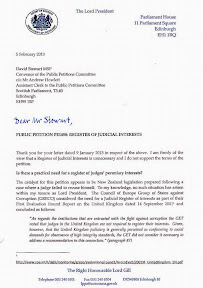


























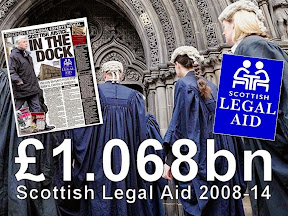
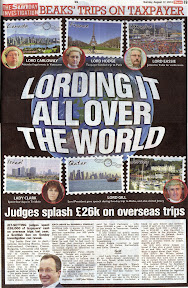













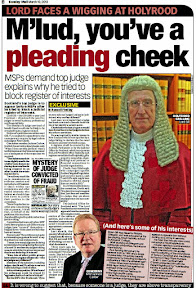
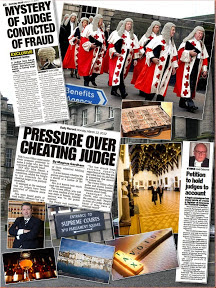
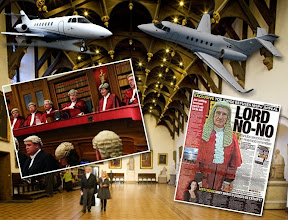


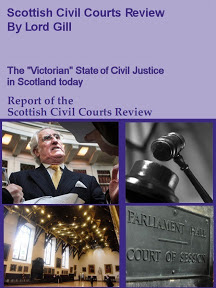
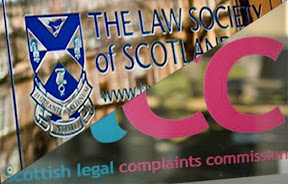



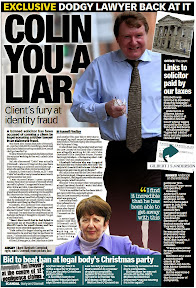
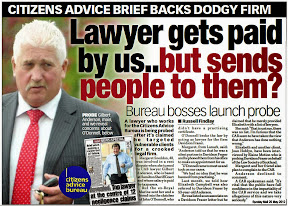



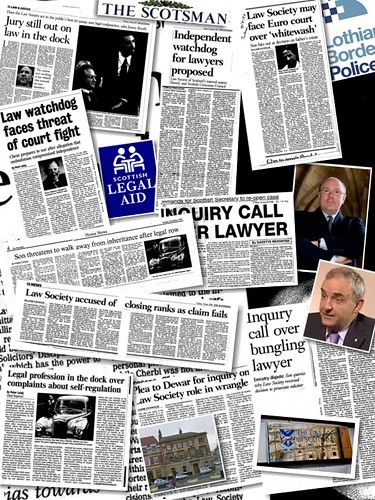




You must be logged in to post a comment.